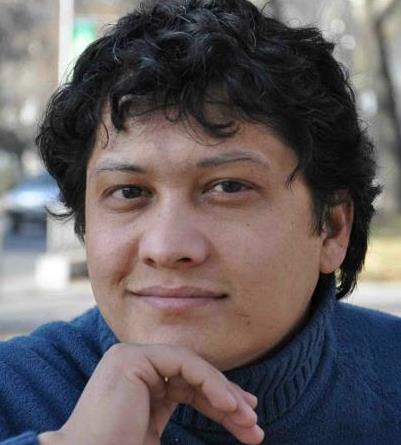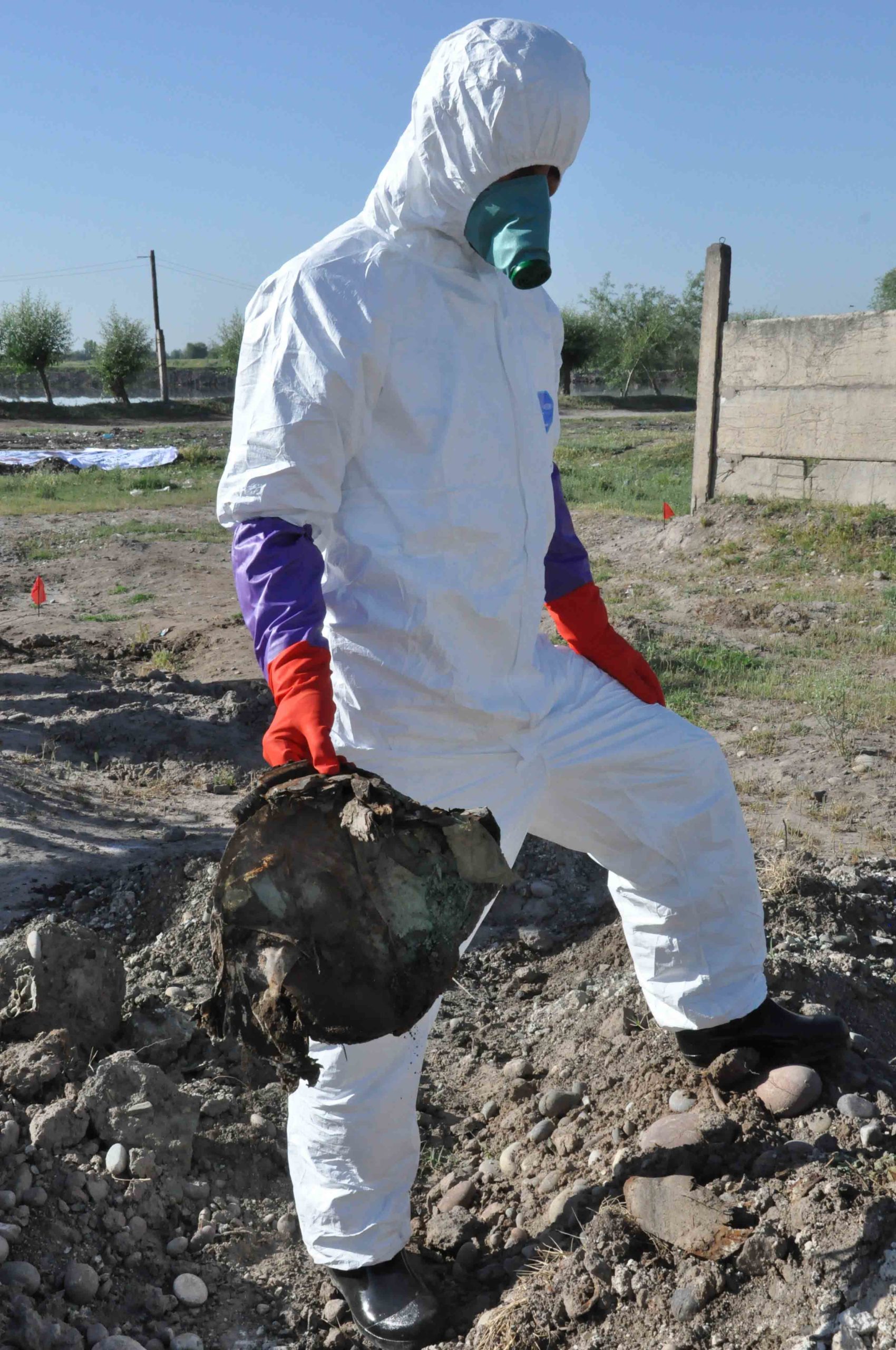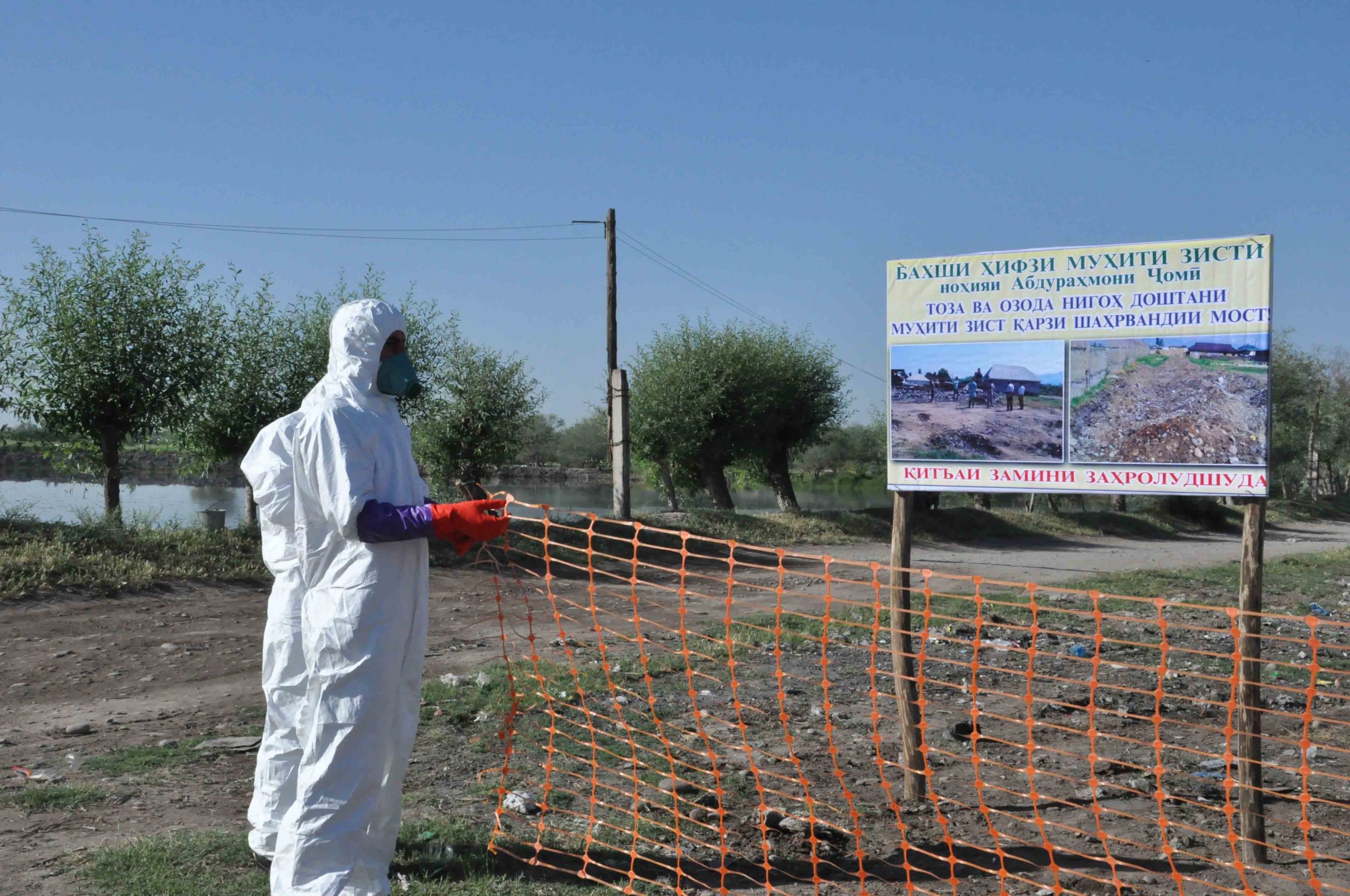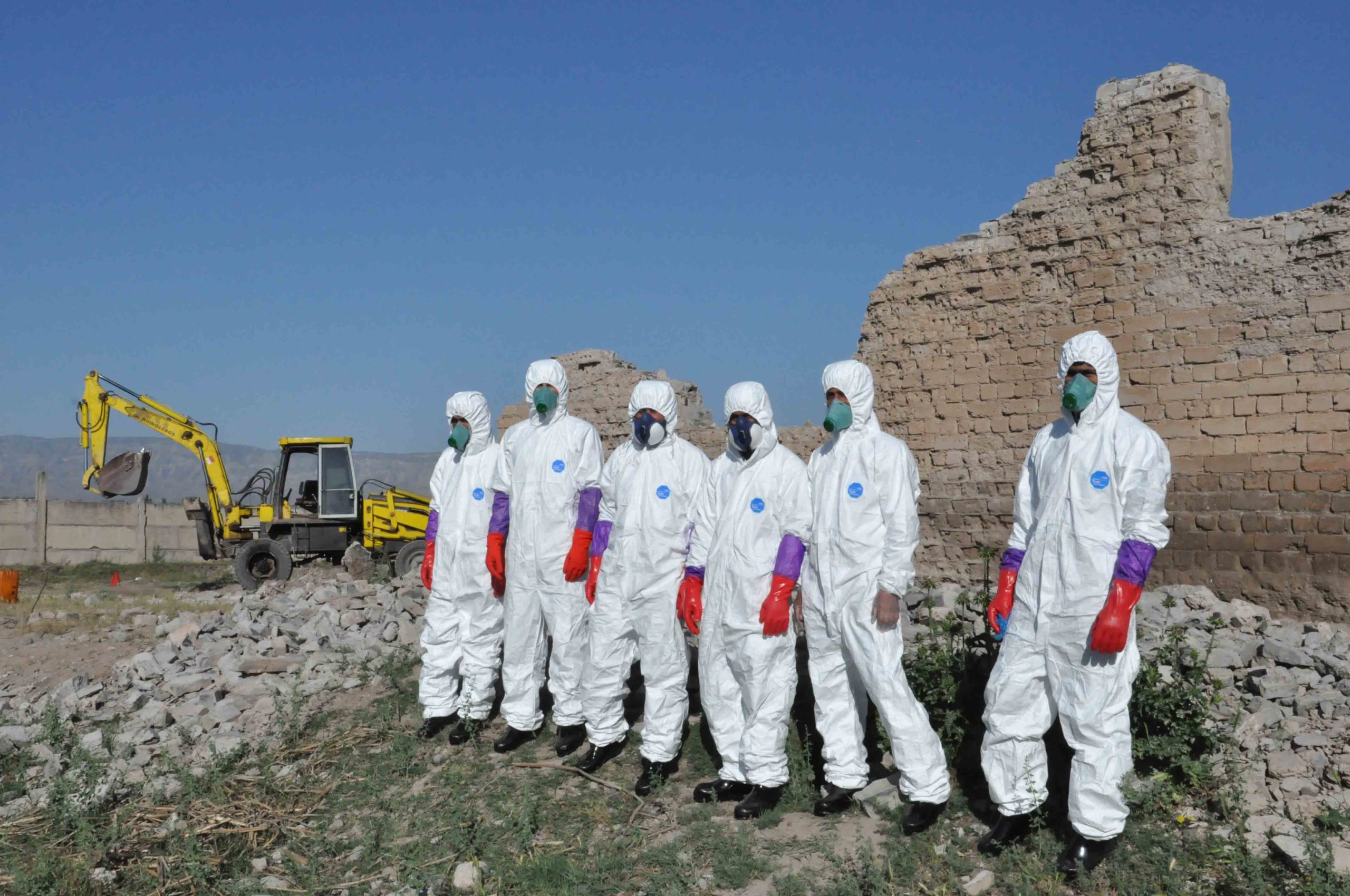 Umed and the Pure Earth remediation team in Tajikistan
Umed and the Pure Earth remediation team in Tajikistan
In the past year, Pure Earth’s team in Tajikistan has been measuring vast regions, where dozens of decrepit pesticide warehouses from the Soviet era have been leaking into the surrounding soil and water.
When homes started being built on a highly-contaminated site in Jami district, Khatlon region, Pure Earth’s coordinator in Tajikistan, Ulugov Umidjon Amonovichis, fondly known as Umed, sprung into action.
Umed informed the local authorities and presented them with all the environmental assessment data he and team members had collected via Pure Earth’s Toxic Sites Identification Program (TSIP).
Understanding the threat posed to the families living in these new homes, the authorities, on the spot, reversed a 2014 approval allowing the land owner to lease property and are prosecuting him for knowingly putting residents health at risk.
Umed tells the story in his own words below as our guest blogger. Congratulations Umed!
Delayed Action Bomb
A little background…
In 2009, I initiated a competition between schools in my area of Tajikistan to collect waste paper. The winners of the action received valuable prizes, but most importantly, there was less paper, plastic and glass waste.
In addition, schools received funds for repair of buildings. And what is more, my initiative was recognized in Parma, Italy, where along with receiving the prize of 1000 Euros, I met, as it turned out to be, one of the best people in the world–Petr Sharov (Pure Earth’s Regional Director in the former Soviet Union and Central Asia).
Petr brought me to Blacksmith Institute, now Pure Earth, where I gained a deeper understanding of the problem of pollution in Tajikistan.
I was able to grow as a person, as an expert, and eventually, became an advocate in the anti-pollution movement,. After a while, public officials began listening to me on pollution issues.
While working on TSIP, we were able to gather a lot of useful data.
Based on the results of research on toxic contamination sites in the territories of former warehouses in 2016, we found many warehouses that were extremely contaminated with DDT and other obsolete pesticides.
These obsolete pesticides are very hazardous to human health and make breathing very difficult especially in the hot weather we have in Tajikistan.
The warehouses were privatized by local residents. One such warehouse was Jovidon in Jami district, Khatlon region, Republic of Tajikistan.
The contaminated warehouses and their territory belong to a man, who in a personal conversation with me, was extremely annoyed that we choose his property for a cleanup. He did not want attention brought to his land, because for a number of years, he lent the right to use the land to build housing for 14 families, 8 of which had built their houses. The remaining 6 had not yet completed the construction and are now unlikely to finish.
I understood very well that in the beginning of a campaign to clean up and remove the chemical contamination from the territory, I would face problems of misunderstanding and even aggression on the part of the site owners. This is a kind of hornet’s nest, which so far, because of the lack of sufficient environmental data, is very common all across our country.
I was also fortunate to gain government approval for my project. The Tajik Environmental Protection Committee wrote a letter of support for this action, and lent me Khayrullaeva Rakhmatullo, their best employee for support.
In general, the Committee has recently begun to pay more and more attention to this issue and in a short time has carried out useful projects to restore the Vakhsh polygon for the storage of obsolete pesticides, and also cleaned the warehouse in the Kumsangir district, and resettled inhabitants of a village called Settlement #1. Despite the considerable assistance of international organizations, the role of this state body has been considerable.
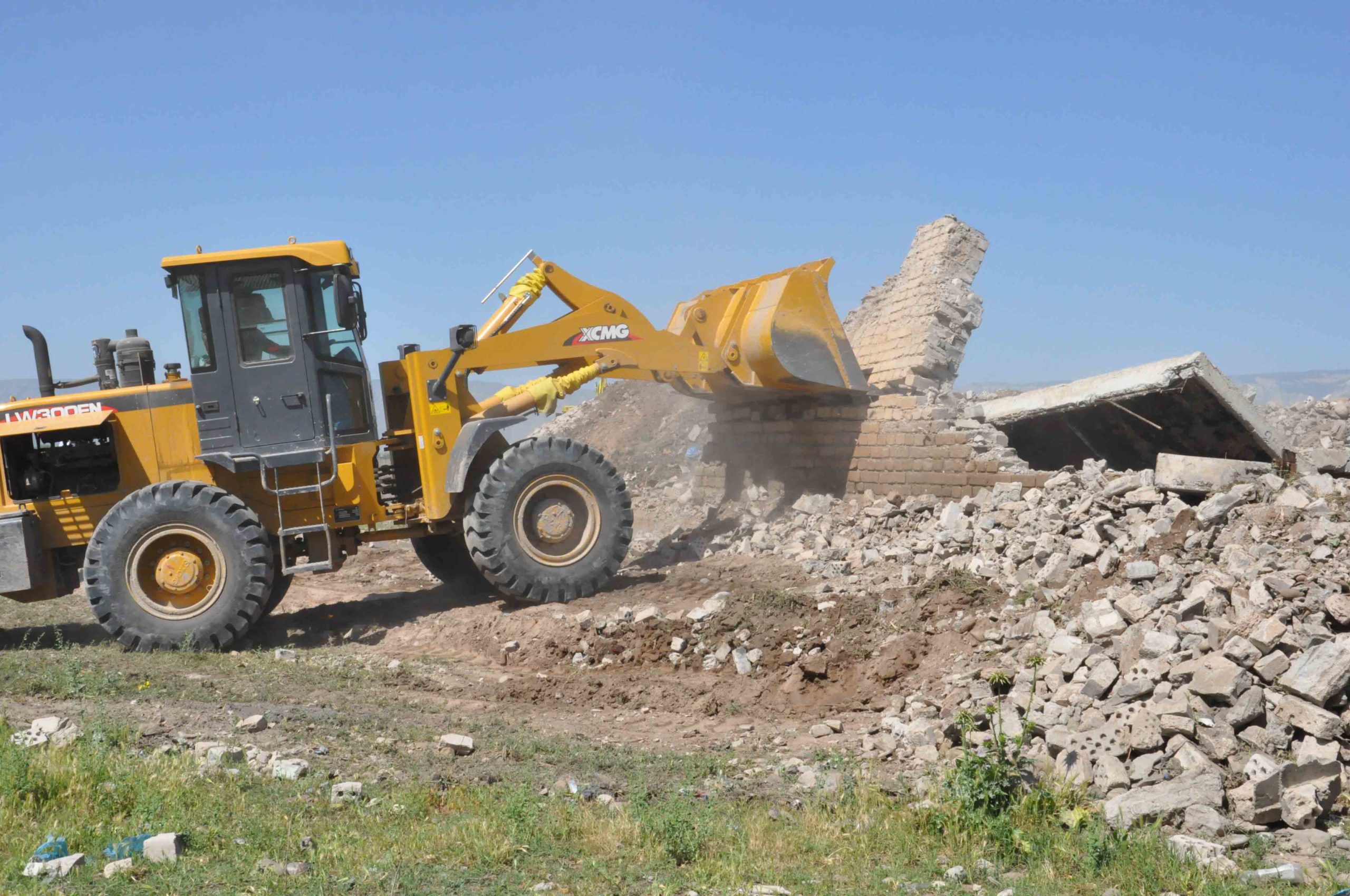 Tearing down the pesticide warehouses
Tearing down the pesticide warehouses
But let us return to the project.
Learning that we were going to clear the territory, the local residents dismantled the walls of the destroyed warehouse brick by brick.
Many of the locals hid these bricks in their homes as building materials are very expensive. After a series of conversations, where I explained to people that the bricks were a threat to their health, some returned the goods back to their proper places.
Another Hidden Danger
In early May, of this year, we excavated the pesticide storage site and found an extreme health hazard for the population – approximately 300 kg of pesticides from the POP family (persistent organic pollutant).
This large amount of toxic material greatly surprised the local population, who had lived here for many years and thought there was nothing dangerous on the territory.
As a result of this latest cleanup project, we removed up to 75-80 cubic meters of polluted soil where, according to my calculations, up to 700 kg of pesticides were detected.
We also took out up to 50-60 cubic meters of slightly polluted soil for burial in the Vakhsh polygon of pesticides. It should be recognized that this difficult work would never have happened, if not for the assistance of the Tajik Environmental Protection Committee.
The site cleanup was scheduled to take place on May 12, 2017. But on May 11, a meeting was held with the head of the district administration of the Jami district and with members of the cleanup team.
At this meeting, the district chairman was given all the information about the facility. The Chairman listened very patiently to our data and findings. The chairman pointed out that the person leasing the land, in fact did not have the right to own the land, and distributed the land illegally. However, the 2014 decision that allowed this land to be developed into housing was still valid. The chairman reversed this decision on the spot prohibiting future building and development on the land.
This decision by the Chairman means that the majority of owners who purchased land will not be able to build new houses and buildings now. He also instructed the security, and prosecutors to verify violations of the country’s legislation. They promised to arrest the man for illegal distribution of land and a putting people’s health at risk.
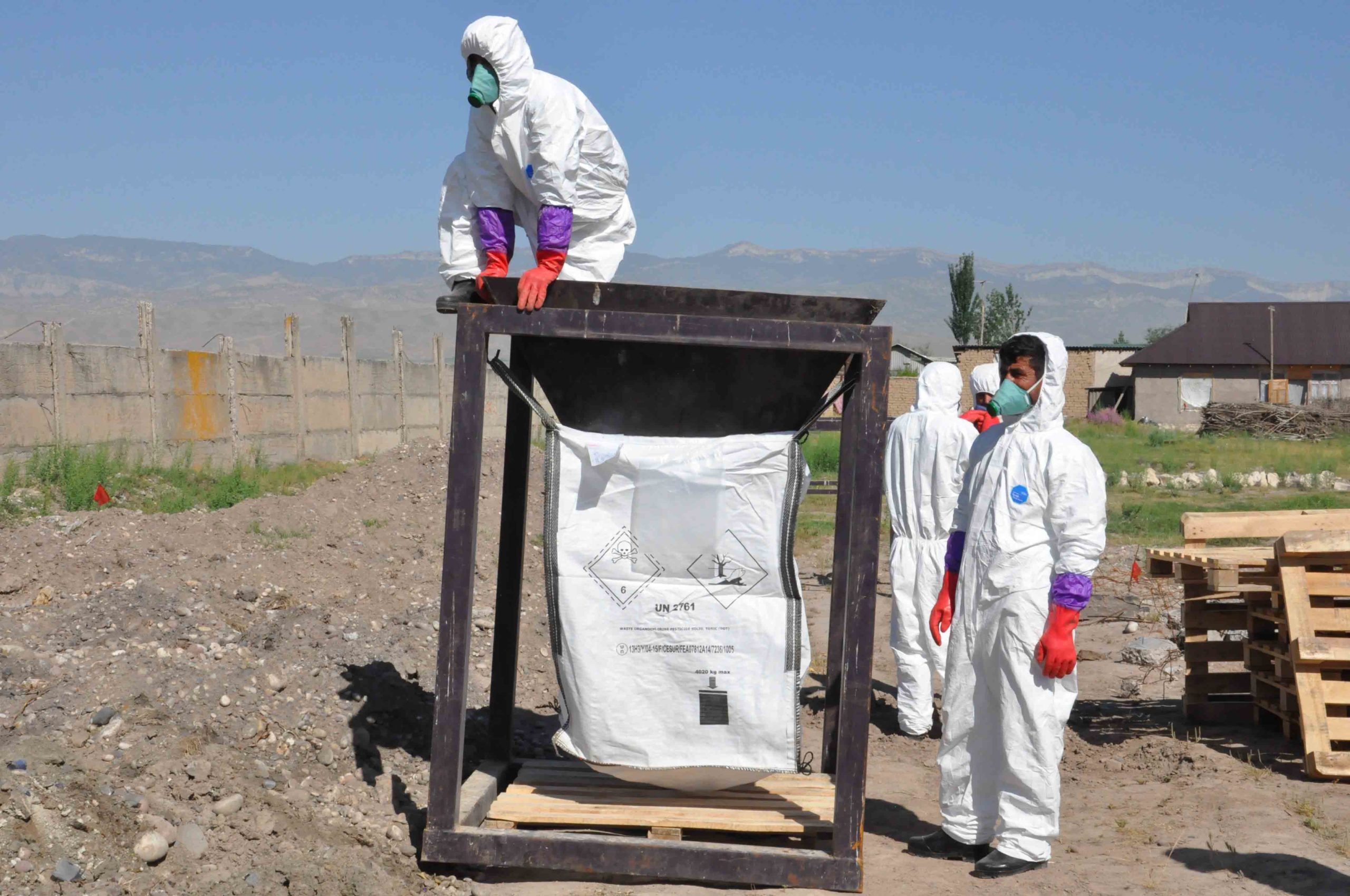 Cleanup crew moving toxic materials
Cleanup crew moving toxic materials
In the meantime, the case went as far as the General Prosecutor’s Office in the capital, Dushanbe. Investigation of similar situations began in the Kumsangir, Jami and Hamadoni districts, i.e. These are the very areas where I conducted independent studies of pesticide storages.
Tajikistan is fortunate enough to have a place to safely store obsolete pesticides. I believe that the number of land owners who will be affected and angered by investigations will grow with time, but, happily, the number of families and children who will be protected from chemical poisoning will grow much more.



